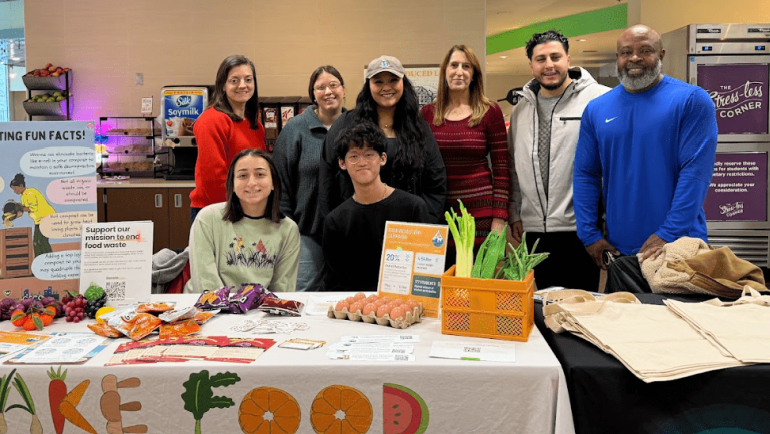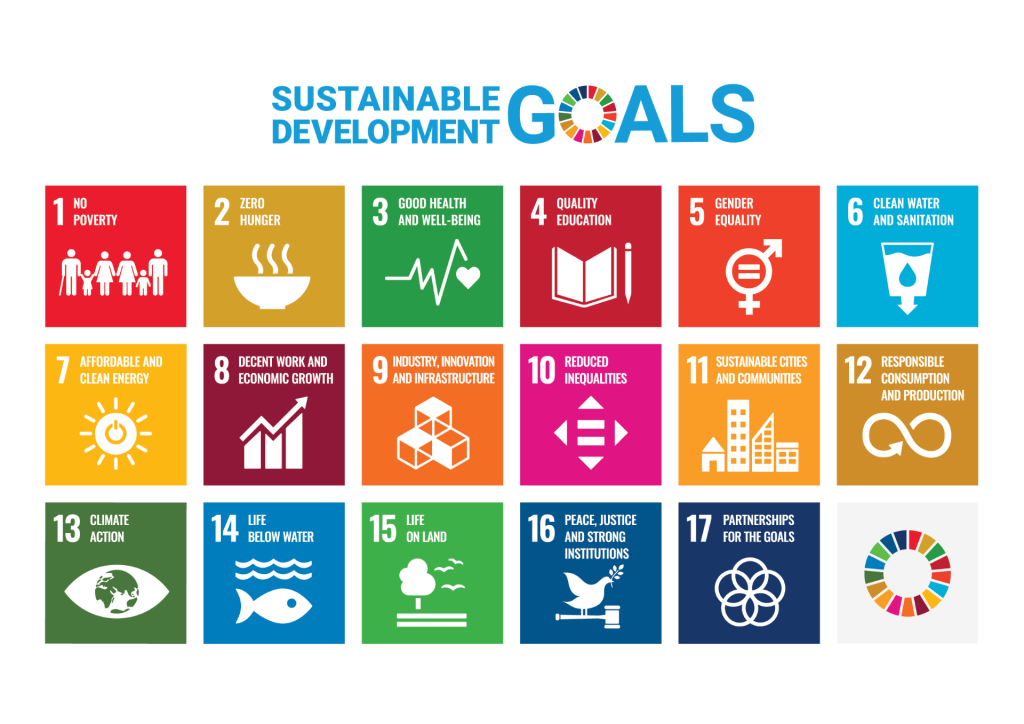
As Michigan continues to face economic and environmental value loss each year due to waste in our food local systems, a team at Wayne State University is working to solve some of these major sustainability challenges.
In 2023, Wayne State and the University of Windsor were officially designated a United Nations Regional Centre of Expertise (UNRCE) on Education for Sustainable Development in the Detroit-Windsor region. Since its official recognition, RCE Detroit-Windsor — which is one of the few binational RCEs in North America — is expanding education and research initiatives at both universities.
While focusing on the United Nations’ Sustainable Development Goals, RCE Detroit-Windsor also identifies actions that address climate change, economic and health disparities, and social inequity to create a more sustainable future for the two communities that share an international border. Many of these sustainability goals — such as good health and well-being, clean water and sanitation, poverty reduction, and economic growth — directly support Wayne State’s Prosperity Agenda, particularly social mobility and empowering health.
“Many stakeholders in Detroit have reached out to us to help address specific sustainability problems in the community,” said Donna Kashian, director of UNRCE Detroit and Wayne State’s environmental science program.
One such community partnership has been with Make Food Not Waste, a nonprofit that works to reduce food waste throughout Michigan.
According to the Michigan Sustainable Business Forum, approximately 1.5 to 2 million tons of food waste is disposed of statewide each year, resulting in an estimated 11.1 million metric tons of carbon dioxide and a loss of about $11.9 billion in business revenue annually.
 Last December, RCE Detroit-Windsor partnered with Make Food Not Waste, as well as Green Warriors Club and the WSU Office of Sustainability, for an eight-week initiative to educate the campus community on food waste and create tangible results in waste reduction. A team of 25 volunteers, led by Kashian and graduate fellow Mohamed Dabaja, hosted four tabling events in University Towers. The team spent over 60 hours on the “Towers Reduction Project,” which included conducting surveys, highlighting food waste facts, and facilitating an activity in which students decorated tote bags with dye made from food waste. The project resulted in a 20% reduction in food waste on campus.
Last December, RCE Detroit-Windsor partnered with Make Food Not Waste, as well as Green Warriors Club and the WSU Office of Sustainability, for an eight-week initiative to educate the campus community on food waste and create tangible results in waste reduction. A team of 25 volunteers, led by Kashian and graduate fellow Mohamed Dabaja, hosted four tabling events in University Towers. The team spent over 60 hours on the “Towers Reduction Project,” which included conducting surveys, highlighting food waste facts, and facilitating an activity in which students decorated tote bags with dye made from food waste. The project resulted in a 20% reduction in food waste on campus.
“The initiative really demonstrates that we can make a difference, even in a short amount of time,” said Dabaja.
The initiative has also drawn recognition from the Global RCE Service Centre at the United Nations University Institute for the Advanced Study of Sustainability. In December 2024, it was announced that UNRCE Detroit-Windsor was honored with the Outstanding Flagship Project Award in the youth-led category. This is the United Nations University’s highest recognition for youth-led initiatives.
As Wayne State continues to tackle sustainability challenges both on campus and across Detroit, Kashian said that RCE Detroit-Windsor is ready to take on more projects. The team has submitted a grant application to partner with the W Food Pantry and University Towers to provide hot meal options, and to continue its food waste education. As RCE Detroit-Windsor builds out its services this year, the team looks to develop projects that serve the needs of the community and promote good health, clean environments and social mobility in Detroit and beyond.
